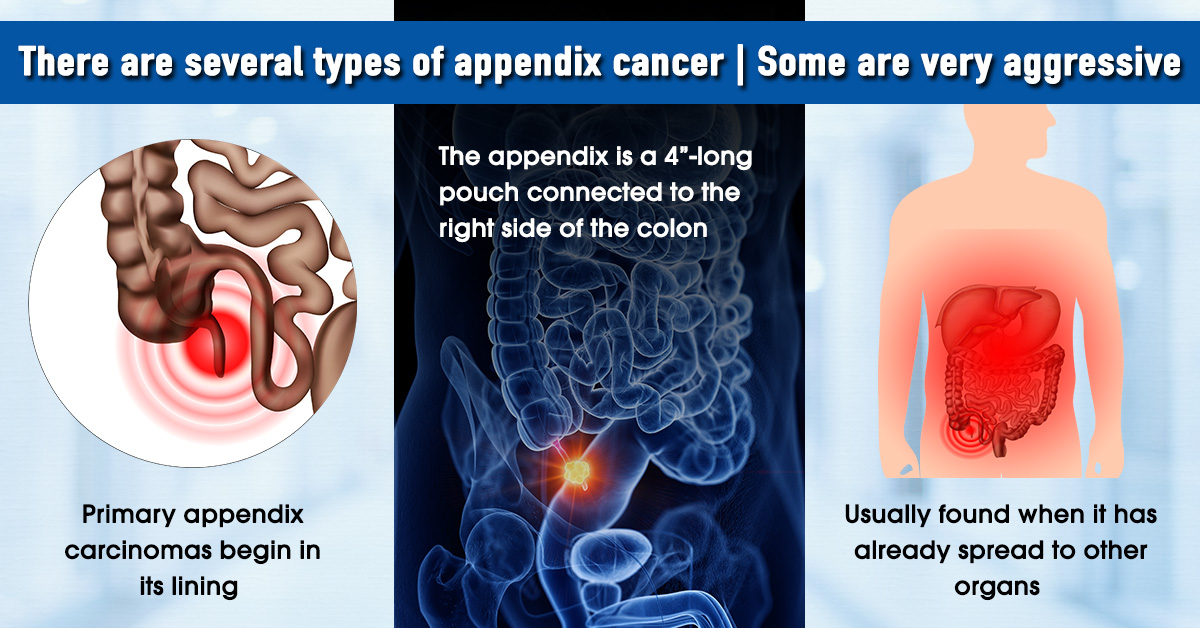
Appendix Cancer
The appendix is a pouch-like tube that is attached to the cecum, which is the first section of the large intestine or colon.
About the Appendix Cancer
Appendix cancer is a rare form of cancer that originates in the appendix, a small,
finger-like organ attached to the large intestine. Though it is uncommon, it can be
serious when diagnosed. The majority of appendix cancers are found incidentally
during surgery for other conditions, as they often do not present noticeable
symptoms in the early stages. When symptoms do occur, they may include
abdominal pain, nausea, bloating, and changes in bowel habits, which can be
easily mistaken for other gastrointestinal issues.
The most common type of
appendix cancer is carcinoid tumors, though other forms, such as mucinous
adenocarcinoma, can also develop. Risk factors for appendix cancer are not well
understood, but it may be associated with genetic conditions like hereditary
nonpolyposis colorectal cancer (Lynch syndrome). Due to its rarity, there are no
routine screening methods for appendix cancer. Treatment typically involves
surgery to remove the appendix and any surrounding tissues affected by cancer.
In some cases, additional therapies such as chemotherapy or targeted therapy
may be needed, particularly for more advanced stages. Prognosis varies
depending on the stage at diagnosis, with early detection offering a better chance
of successful treatment. Since it is often diagnosed at an advanced stage, research
into better diagnostic tools and treatment options remains crucial.
What is Appendix Cancer?
Appendix cancer, or appendiceal cancer, refers to a malignant growth that originates in the cells of the appendix. The appendix is a small, finger-like pouch attached to the large intestine in the lower right abdomen. Although its function in the human body is not entirely clear, the appendix can become a site for tumors. These tumors are rare, accounting for less than 1% of all gastrointestinal cancers. Due to its rarity and the often vague symptoms, appendix cancer is frequently discovered incidentally during surgical procedures for unrelated conditions, such as appendicitis.





